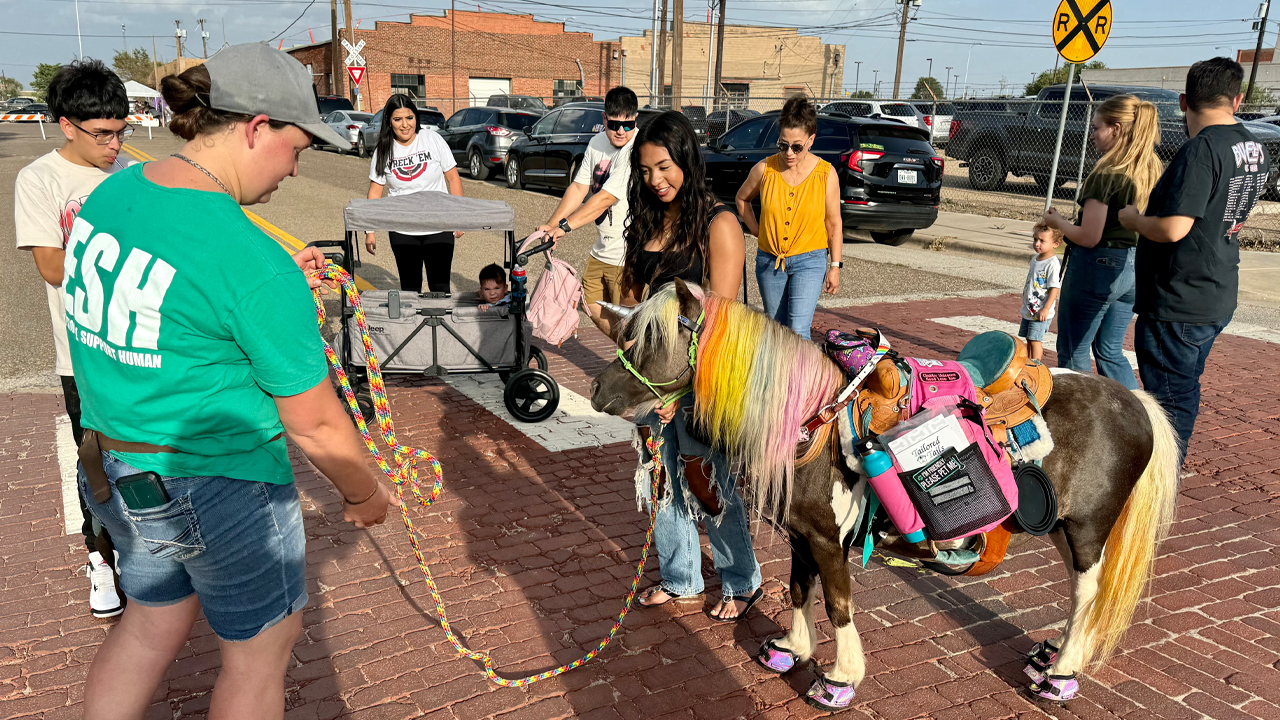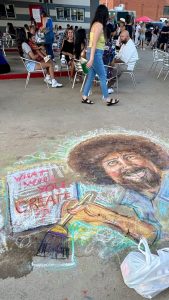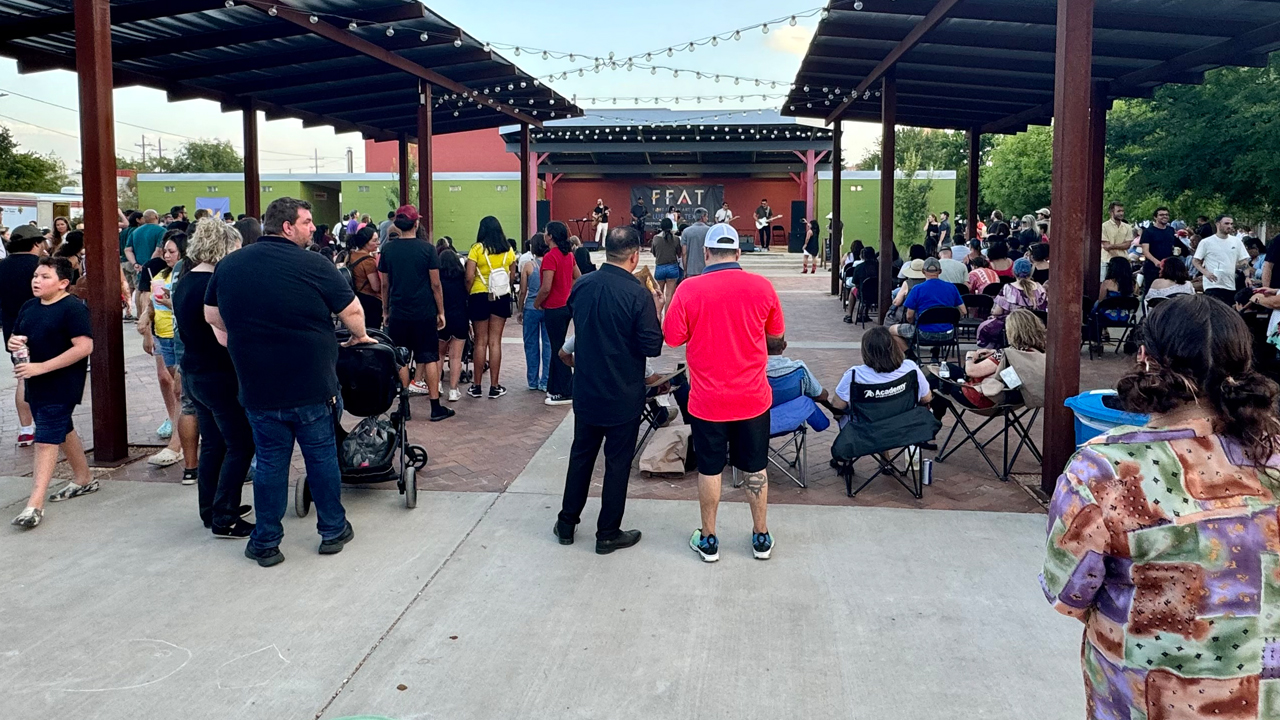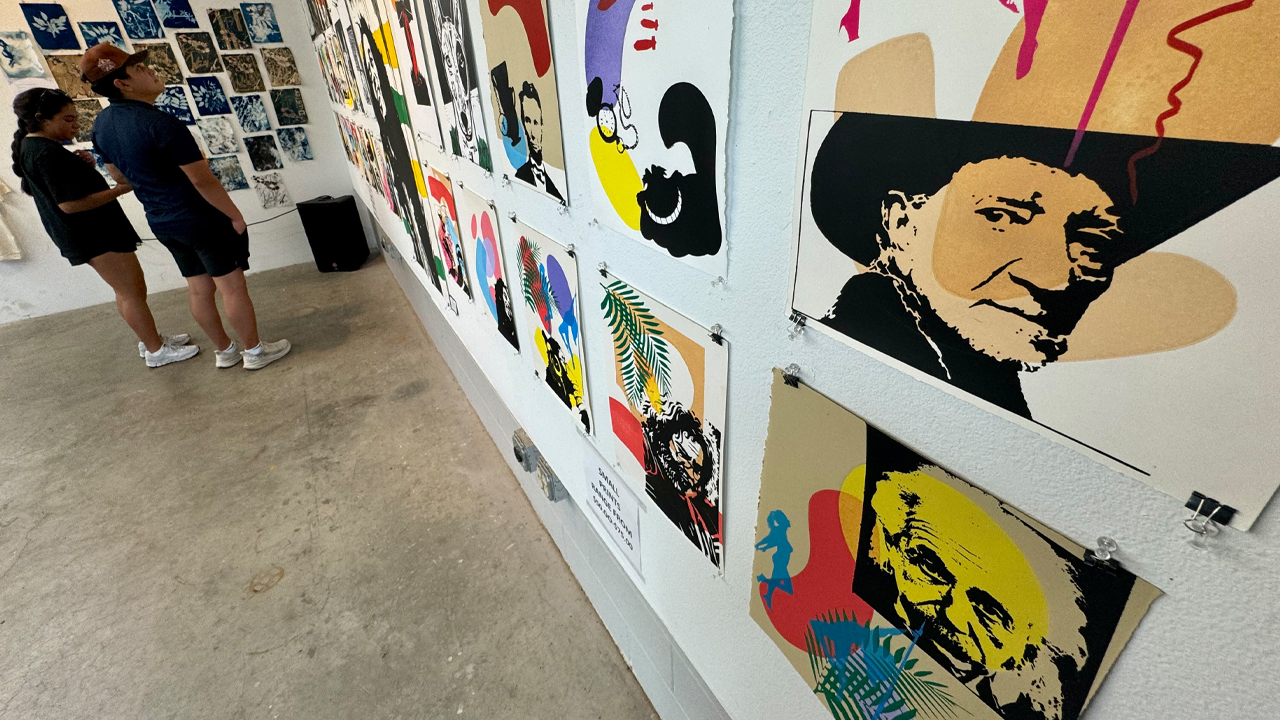First Friday Art Trail in August
Special note: On Tuesday night, the City Council approved $5,000 for security at the First Friday Art Trail. The remainder of the requested money (as described in the article below) was denied. Click here for an updated article.
An item to restore $25,600 funding for the First Friday Arts Trail in the Tuesday City Council meeting comes with strings – of a sexual nature – attached.
The money can be used – as it has been in the past – for marketing FFAT as a whole (not individual acts or exhibits), a free trolley and security.
But going forward, the money cannot be used to promote “any activity that depicts sexual acts or activities of a sexual nature … youth specific programming or gender specific programming.”
Also, it cannot be used for any political candidate or political party. It cannot be used for art exhibits outside of Lubbock.
LHUCA, the Louise Hopkins Underwood Center for the Arts, coordinates FFAT but does not control programming at the other dozen or so participating venues.
Tonja Hagy-Valdine, LHUCA’s former director of marketing, said the restrictions are unacceptable.
“No. No. 100 percent no,” she said.
There are First Amendment concerns. But Hagy-Valdine explained how FFAT is set up. It was not made to be centrally controlled.

Rainbow unicorn at FFAT in August
How’d we get here?
“First Friday Art Trail (FFAT) began in 2004, with 13 people and a dog in attendance,” according to downtownlbk.us.
It encouraged art galleries and gave people a reason to visit Downtown.
More recently, the City Council designated a portion of hotel tax collections to Civic Lubbock Inc., which in turn provided money to LHUCA for the Art Trail.
Hagy-Valdine worked for LHUCA from 2009 to 2016.
“When I joined, the trail was five years old. So, I inherited the program at five years old,” she said.
On a slow weekend, maybe 75 people would show up – 200 in a good month.
“By the time I left, it’s hard to put it in numbers. But I’m gonna say 2,000-3,000. It was a lot. It was big. It still is big. It kind of took on its own heartbeat,” Hagy-Valdine said.
The City’s website said, “Last year FFAT attracted approximately 63,000 people of which 10,710 people were described as out-of-town guests or tourists; and LHUCA expects FFAT to attract approximately 64,000 people in the next year.”
That works out to more than 5,000 people per month.
After a new City Council took office this year, Councilman David Glasheen raised a concern on July 23. He said FFAT was used to promote “Queering West Texas” a drag show and other LGBTQ exhibits.
A July drag show was canceled at the last moment and replaced with a non-drag performance. On a 5-2 vote, the council removed FFAT funding.
Mayor Mark McBrayer later issued a statement asking for time to reconsider the matter. He did so after loud public criticism.
How FFAT works
Hagy-Valdine described how FFAT works, but gave a clear caveat that she can only speak to her time with the program. She does not know what changes were made since 2016.
Lindsey Maestri, LHUCA executive director, did not return a call and email for comment.

When Hagy-Valdine started, there were maybe five or six venues every month. In August, there were 12.
Each venue paid a small fee to LHUCA for marketing.
“It’s pretty simple. Everyone’s kind of in charge of their own programming,” Hagy-Valdine said.
“In my 7 years there, I don’t ever recall taking an issue with any artwork. … It was very important to both of the directors that I worked under that we didn’t censor the artists and we didn’t censor the venues,” she recalled.
“The only requirement is that they didn’t charge admission because Louise Underwood’s wishes for the trail was that it stay as accessible as possible to all people.”
That was it. Free admission. No other rules.
Businesses could charge for food & drink or T-shirts and such. But seeing the art had to be free.
“I don’t remember ever a time where we told the venue you have to take that down. In fact, I can 100 percent tell you it never happened in my tenure,” Hagy-Valdine said.
It seems to still be the case.
In late July, Maestri told LubbockLights.com via email, “LHUCA is only responsible for the programs, performances, and exhibitions that take place at LHUCA. As independent non-profits or businesses, the other stops on the trail program their own creative content.”
Hagy-Valdine said, “There was never a time where there was a huge controversy. There was never yelling and screaming. There were never racial and or any other slurs being slung around the yard trail. It was this perfect – and it still is – it’s this perfect place where literally everyone in our community comes together for this one common goal. And that is to enjoy the arts.”
What changed since July 23?
The city website said, “… The City Council denied the funding requested by LHUCA as recommended by CLI believing that the funds would be used for purposes or activities that were not family friendly and promoted/advocated a political movement or position and as such should not be supported by public tax money.”
“After the July 23 City Council meeting, additional information was provided by LHUCA,” the website also said in reference to the agenda for Tuesday’s City Council meeting.
The city said Civic Lubbock Inc. and LHUCA clarified the money would be designated for general marketing of FFAT, a free trolley service and security.
“Based on the new information provided by CLI and LHUCA, the City Council finds that the FFAT has a positive economic impact on tourism … [and] is a benefit to the health and safety of the public,” the website said.

That mirrors what Mayor McBrayer said in his July 26 statement.
“I, like you, enjoy the FFAT and generally think it is worthy of support,” McBrayer said. “Although I cannot speak for anyone else on the City Council, with the additional information received, I’m hopeful we will come to an arrangement.”
Glasheen, the Councilmember who raised concerns in the first place, has remained consistent so far.
“The government doesn’t need to support political speech. The government doesn’t need to promote indoctrination of children with values that contradict our West Texas values,” he said to LubbockLights.com in July.
His texts and follow up communications since then have stayed along those lines.
“This is a conversation that we need to have in public, not only to comply with the requirements of the Open Meetings Act, but also so the entire community can be part of the discussion,” Glasheen said.
We reached out again to Glasheen Monday evening but did not hear back prior to publishing.
Comment, react or share on our Facebook post.


 Facebook
Facebook